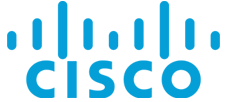Implementing and Administering Cisco Solutions

Kursun kodu
CCNA
Müddət
5 Gün, 40 Saat
Kursun təsviri
Məqsədlər
Tələblər
Kursun proqramı
Kursun təsviri
The new CCNA training teaches a broad range of basic knowledge about modern network technology. This course comprises:
- 5 days of extensive training in our training centers or the virtual classroom
- 3 days of self-study on special topics
- Virtual lab, which is available, even after the end of the classroom training, from the first day of training for 90 days and a total lab time of 60 hours.





